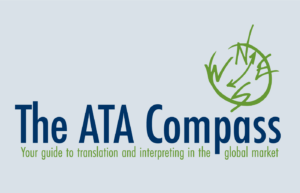Video Game Localization: Q&A with Expert Marina Ilari (Part 2)

Expert game localizer Marina Ilari joins us again to answer more questions about the video game localization process. Read on to learn:
- What to consider when choosing your localization partner
- How to increase your game’s impact through localization
- The keys to success
- How to avoid the common pitfalls of game localization
This is Part 2 of a two-part series. If you missed Part 1, you can check it out here.
In Part 1, we covered what video game localization is, ran through the steps in the process, and named the Who’s Who of localization—the players you need on your team to succeed.
Choose Your Video Game Localization Partner
What tips can you share to ensure a smooth localization process? What do game developers or publishers need to know?
The first step is to choose the right localization partner. It’s essential to collaborate with a team that not only possesses the necessary technical skills but also has a deep understanding of your game’s genre and content. Experienced localization partners will employ specialized project managers and translators who grasp the intricacies of gaming. To verify this expertise, request case studies, referrals, and a portfolio of past work. Collaborating with professional translators who are recognized for their contributions—even credited in the game—provides added advantages, fostering accountability and strengthening trust.
The right technology and workflows are key to ensuring your localization project runs smoothly. Your localization partner should have efficient processes in place, using translation management systems, quality assurance (QA) tools, and terminology databases. Together, these ensure consistency and quality across all localized content. Effective terminology management is essential in game localization, including a solid process for handling specialized terms. This keeps the game’s language consistent and the players’ experience authentic.
Clear QA and query management practices have a significantly positive impact on the localization workflow. These include having a structured QA approach that enables early detection and correction of potential issues. A responsive query management system further supports translators, ensuring that any ambiguities or questions can be resolved swiftly to maintain accuracy.
Finally, it pays to find a localization specialist who is also genuinely passionate about your game’s success—a real partner who collaborates closely with developers, listens to player feedback, and remains invested in the game’s performance in international markets.
Boosting Your Game’s Impact
What is the potential impact of video game localization?
The impact of a well-localized game can be profound—on both gamers themselves and the gaming world as a whole. Many gamers are incredibly vocal and passionate about the games they play, often sharing feedback openly with developers and across social media. A poorly localized game negatively impacts their experience, making it feel disjointed or even frustrating, which can ultimately damage the game’s reputation. A poor localization doesn’t go unnoticed. Players quickly spot inconsistencies, awkward text, or lack of cultural relevance, which can lead to negative reviews and diminished trust in the game’s quality.
As an avid player, I have experienced this myself and I’ve stopped playing a game for these very reasons. The problems become a distraction and the experience becomes awkward, so you disengage. It’s simply no longer fun to play. For a game to succeed internationally, it’s essential that players can enjoy it in their native language. It must feel natural and authentic. A high-quality localization goes virtually unnoticed. Players might not even realize they’re playing a game that was originally developed in another language. It allows the game to cater to the local fan base in each target region, building a loyal and enthusiastic community.
Keys to Successful Video Game Localization
What can make or break a game localization? What do you consider signs of successful localization?
Successful localization involves respecting the game’s lore, ensuring accurate and consistent terminology, and adapting the text to feel natural to players. When localization is done well, players don’t notice it—they’re simply immersed in the world, able to enjoy humor, cultural nuances, and gameplay as seamlessly as they would in the original version.
Signs of successful localization include accuracy in terminology, consistency in style, and respect for the game’s story and lore. The humor, slang, and cultural references are adapted in a way that resonates with players in the target language without feeling forced or out of place. A clear indicator of quality is a localized game that maintains the tone and emotional impact of the original while feeling authentic in the target language.
Misconceptions and Realities of Game Localization
What are common misconceptions or misunderstandings buyers have about game localization?
One common misconception is that localization simply involves translating the words in the game (text or audio) from one language to another. In reality, game localization is the complex, highly specialized process of adapting cultural references, humor, and even gameplay elements so they feel authentic and engage players in the target language. It’s a creative process that requires in-depth knowledge of both the game’s universe and the cultural nuances of the target audience.
Another misunderstanding is that any translator who speaks more than one language can handle game localization. In fact, success requires specialized linguists who are not only experts in a particular language pair, such as translating from English into Spanish, but also understand the gaming industry, are familiar with specific genres, and can accurately reflect the tone, terminology, and style of the game. General translation experience alone is insufficient for this kind of work.
Some buyers also underestimate the time and resources needed for quality localization. In today’s world of translation apps and artificial intelligence, they mistakenly believe that localization can be accomplished by pressing a button to move from one language to the next. This misconception often leads to unrealistic expectations about the time and effort needed for the localization process. However, game localization involves several phases—such as familiarization, file preparation, terminology and query management, quality assurance, and sometimes revisiting the localization to address player feedback. Rushing these stages can lead to poor-quality localization that negatively impacts the gaming experience. (Read Part 1 to learn more about these steps!)
Investing in Your Game
In your opinion and based on your experience, what other factors should localization buyers consider?
We translators know only too well that translation is often overlooked and undervalued. I think it’s important for localization buyers to consider localization from the very beginning of the project rather than as an afterthought. Integrating localization early on allows potential issues to be addressed upfront, making it easier to adapt content, avoid rushed last-minute changes, and ensure the game is fully prepared for global audiences before it is launched. Waiting until the final stages can limit options, create unnecessary stress, and even impact the quality of the final product.
It’s also crucial for buyers to see localization as an investment and a strategic market enabler. Quality localization enhances the game’s appeal to international players, fostering a global fan base and opening new revenue opportunities.
Finally, it’s important to recognize that localization is a highly creative process. Expert translators carefully adapt content to resonate with players in different cultures, maintaining the game’s tone, humor, and immersion. Buyers who understand this are more likely to partner with the right people and do the job well. The results will speak for themselves.
Let’s Localize!
Video game localization is a complex process, and a successful localization project takes a great team of key players. Ready to get started on your video game localization? Search the ATA Language Services Directory using the keywords “video game” and “localization” to find a professional localizer for your game localization project.
Thanks again to video game localizer Marina Ilari for answering all of our burning questions!
By Meghan McCallum
About the Author
Meghan McCallum is an ATA-certified French to English translator and writer specializing in corporate communications, marketing, and international development. She is also an active volunteer for the American Translators Association. The American Translators Association represents almost 9,000 translators and interpreters in more than 100 countries. To hire a translation or interpreting professional, please visit www.atanet.org/directory.
is an ATA-certified French to English translator and writer specializing in corporate communications, marketing, and international development. She is also an active volunteer for the American Translators Association. The American Translators Association represents almost 9,000 translators and interpreters in more than 100 countries. To hire a translation or interpreting professional, please visit www.atanet.org/directory.
Language Services Directory
Subscribe to The ATA Compass
Connect with The ATA Compass
Recent Posts
Client Assistance
Can I afford to hire a professional? You can’t afford NOT to. Poor translation and interpreting services can be disastrous for your business. See what’s at stake. Learn More What’s…
Read MoreThe ATA Compass
Want to reach more customers, grow your business, and improve your bottom line? The ATA Compass publishes articles and provides resources to show you how language professionals can help you…
Read MoreLanguage Services Directory
Start Your Search ATA’s Language Services Directory includes a list of all ATA members of individuals, as well as companies. Need help finding the right professional? Professional translators and interpreters…
Read MoreKnow Your Rights to Language Access
Is English Not Your Primary Language? If you have a limited ability to read, write, speak, or understand English, you are considered to be Limited English Proficient (LEP). As an…
Read MoreWhy You Should Use a Certified Translator or Interpreter
Choosing a Certified Professional is the Smart Choice A certified translator or interpreter ensures effective, accurate, and culturally sensitive communication that truly bridges the gap between languages and cultures. Accuracy…
Read MoreMachine Translation
What is machine translation? Machine translation (MT) is the use of automated software that translates text without human involvement. Adaptive MT is a technology that learns and adjusts in real-time…
Read More






